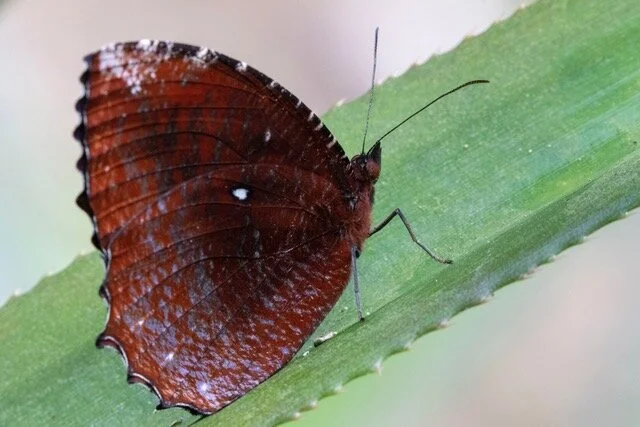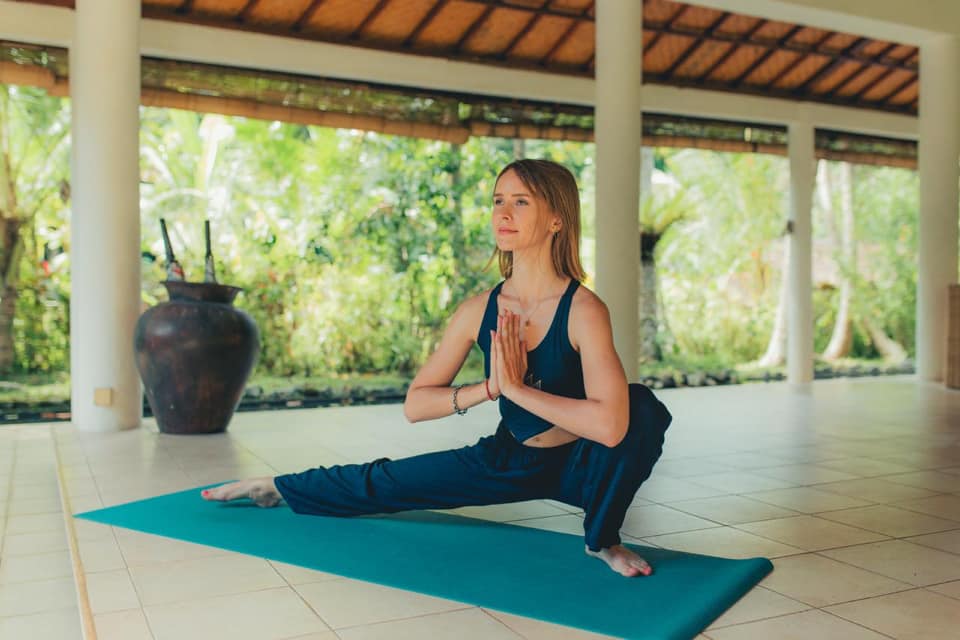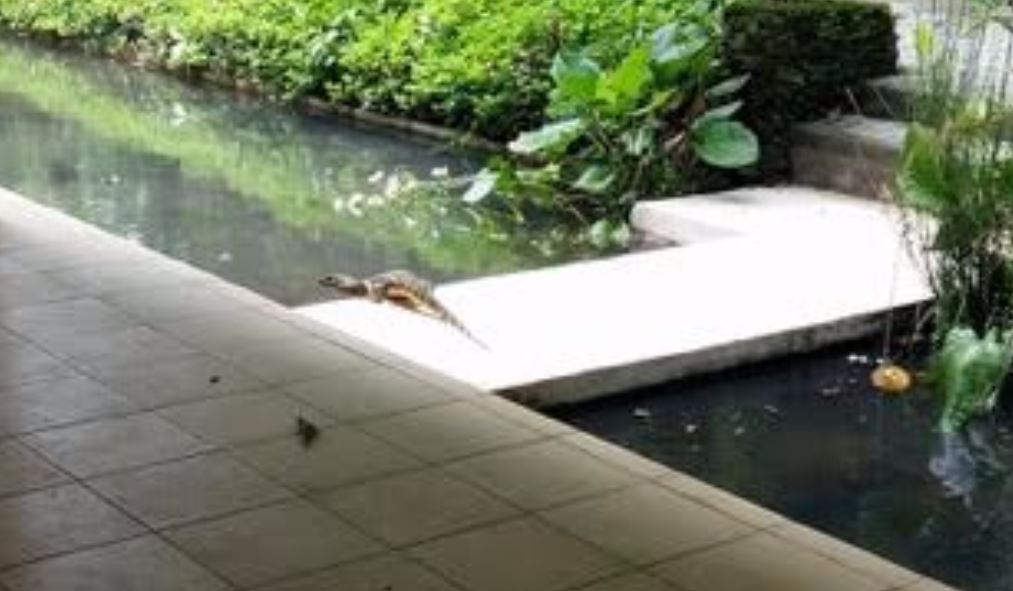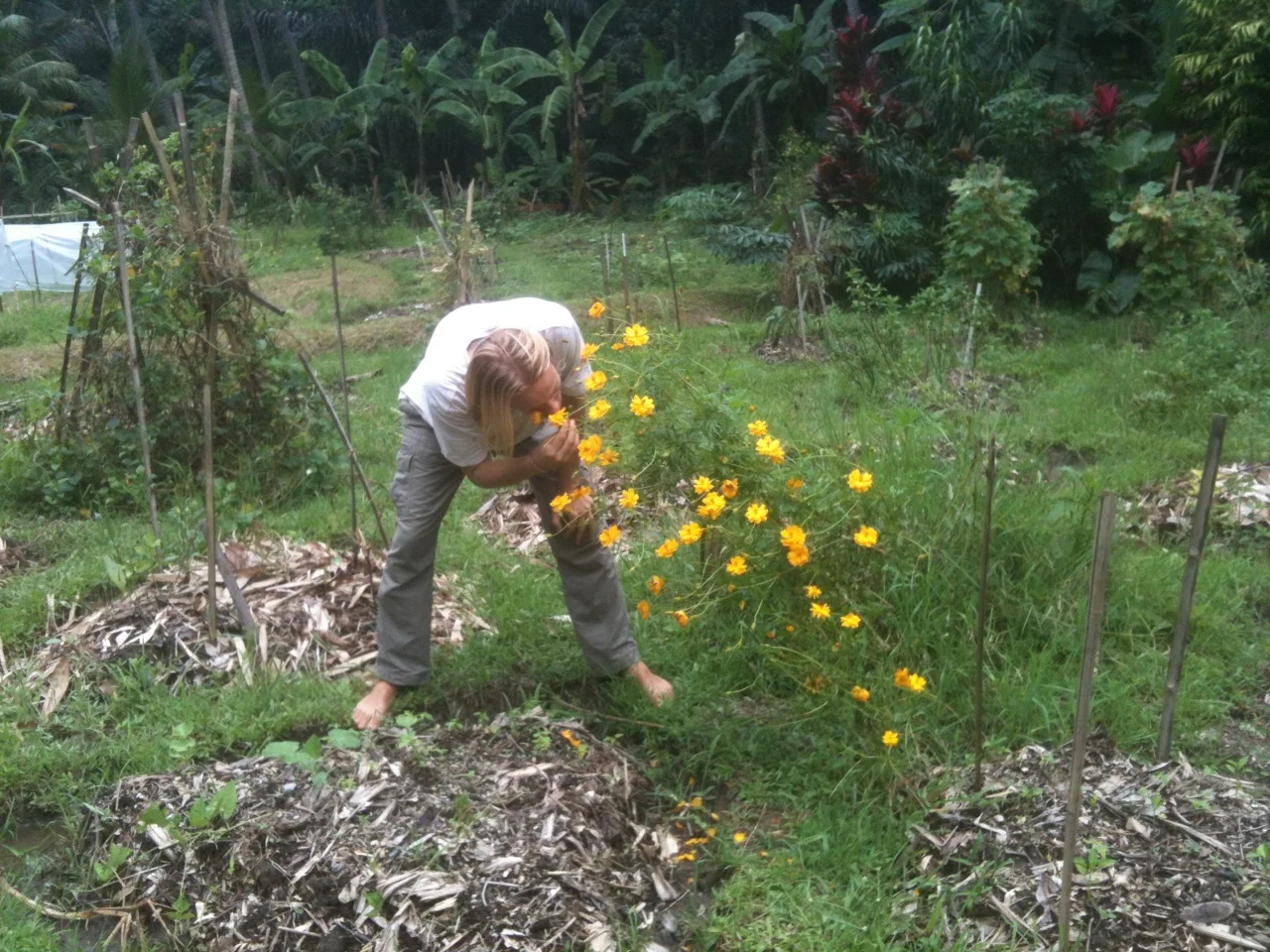When I chose Jiwa Damai I didn’t really know what to expect. I thought I’ll study permaculture and teach yoga but eventually it turned out to be so much more.
First of all, the place where Jiwa Damai is located is just magical. Peaceful and tranquil, surrounded by lush vegetation. People who are working here and other volunteers and interns make this place even more special. We were always together, chatting and laughing. Here you’re literally fell yourself like home.
I also feel grateful and blessed to had an opportunity to be supervised by Margret. She is a super women. Her life and professional experience is countless (and priceless). She was directing me throughout my entire stay - explaining, giving suggestions and recommendations about my project. What I really liked about her supervision is that she was interested in finding ways to make the internship valuable and beneficial for ME.
During my 2,5 months stay I was doing my own project of retreat center. I was learning how to manage, maintain and promote it. I learned different aspects of running your own center in another country. I learned how to do permaculture design and how to be responsible and sustainable in what you’re doing.
Each day was different from another.
Some days I was working more in the garden: making compost, preparing soil and planting seeds. Some days I was more focused on paper and computer work. Some parts of my project also involved traveling around, meeting with a culture, observing different places and getting inspiration from them.
But what was even more valuable is my personal transformation. I feel myself more calm and peaceful after almost 3 months here. I got some clarity about things I want to do in my future, I got inspired and ready to create new things.
I recommend this place to everyone who want to learn more about permaculture and sustainable living. Who is ready to transform, get inspired and immerse into Balinese culture. I had so much fun and gained so much knowledge! I couldn’t wish for a better place for my internship.
Thank you Jiwa Damai and Margret for a life-changing experience



![PHOTO-2018-11-14-05-57-58[1].jpg](https://images.squarespace-cdn.com/content/v1/55f25550e4b0fde04e7d1be4/1542622648735-DGXD2G8MJ7QB67ID9Q4U/PHOTO-2018-11-14-05-57-58%5B1%5D.jpg)
![PHOTO-2018-11-14-05-57-58(1)[1].jpg](https://images.squarespace-cdn.com/content/v1/55f25550e4b0fde04e7d1be4/1542622663856-F2X4XCFKBIL4PV5BEV7L/PHOTO-2018-11-14-05-57-58%281%29%5B1%5D.jpg)
![PHOTO-2018-11-14-05-57-59[1].jpg](https://images.squarespace-cdn.com/content/v1/55f25550e4b0fde04e7d1be4/1542622670250-69LRRPLE49AMT76QWP5H/PHOTO-2018-11-14-05-57-59%5B1%5D.jpg)
![PHOTO-2018-11-14-05-58-00[1].jpg](https://images.squarespace-cdn.com/content/v1/55f25550e4b0fde04e7d1be4/1542622676887-CILVHLJNM3Z8VEZ0K9QM/PHOTO-2018-11-14-05-58-00%5B1%5D.jpg)
![PHOTO-2018-11-14-05-58-00(1)[1].jpg](https://images.squarespace-cdn.com/content/v1/55f25550e4b0fde04e7d1be4/1542622707856-I7XW7481XC3N4IVBAJE9/PHOTO-2018-11-14-05-58-00%281%29%5B1%5D.jpg)
![PHOTO-2018-11-14-05-58-01[1].jpg](https://images.squarespace-cdn.com/content/v1/55f25550e4b0fde04e7d1be4/1542622717140-NQX8VCOHCI77AK60JRRG/PHOTO-2018-11-14-05-58-01%5B1%5D.jpg)
![PHOTO-2018-11-14-05-58-01(1)[1].jpg](https://images.squarespace-cdn.com/content/v1/55f25550e4b0fde04e7d1be4/1542622726136-3GSFBAT414UAW98EYUMA/PHOTO-2018-11-14-05-58-01%281%29%5B1%5D.jpg)
![PHOTO-2018-11-14-05-58-01(2)[1].jpg](https://images.squarespace-cdn.com/content/v1/55f25550e4b0fde04e7d1be4/1542622737188-0E5FM8GKVLBY33OPTAN0/PHOTO-2018-11-14-05-58-01%282%29%5B1%5D.jpg)
![PHOTO-2018-11-14-05-58-02(2)[1].jpg](https://images.squarespace-cdn.com/content/v1/55f25550e4b0fde04e7d1be4/1542622767718-OLTREAN7AIJ5SG2U1Y14/PHOTO-2018-11-14-05-58-02%282%29%5B1%5D.jpg)
![PHOTO-2018-11-14-05-58-02(1)[1].jpg](https://images.squarespace-cdn.com/content/v1/55f25550e4b0fde04e7d1be4/1542622773242-QAXNCGLJHCATVWL02GVC/PHOTO-2018-11-14-05-58-02%281%29%5B1%5D.jpg)
![PHOTO-2018-11-14-05-58-02[1].jpg](https://images.squarespace-cdn.com/content/v1/55f25550e4b0fde04e7d1be4/1542622779687-J04CG3M1ME8FY3Y8DYAR/PHOTO-2018-11-14-05-58-02%5B1%5D.jpg)









